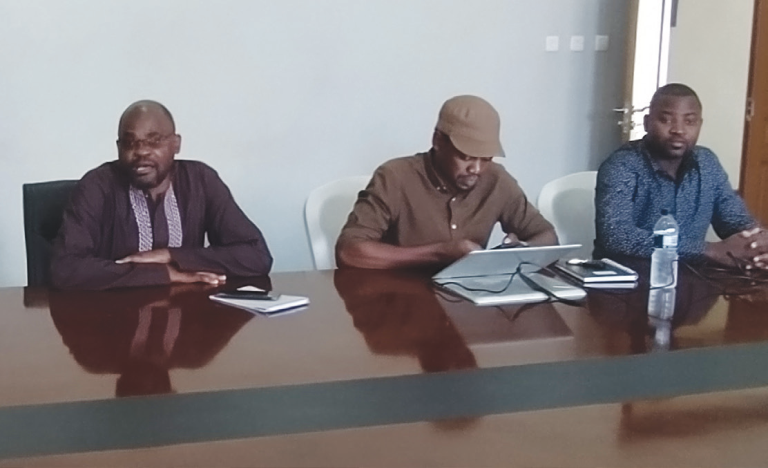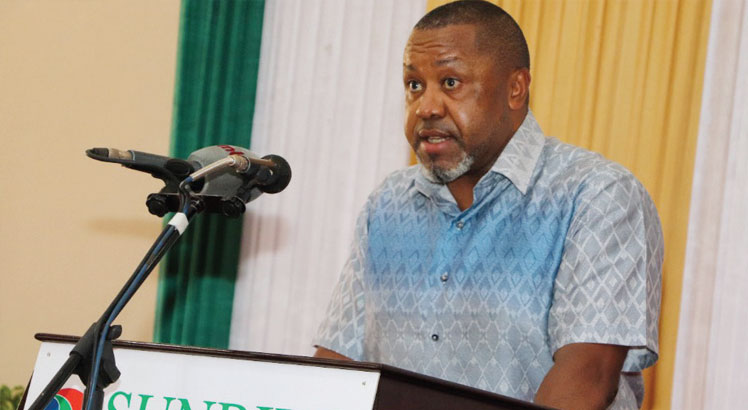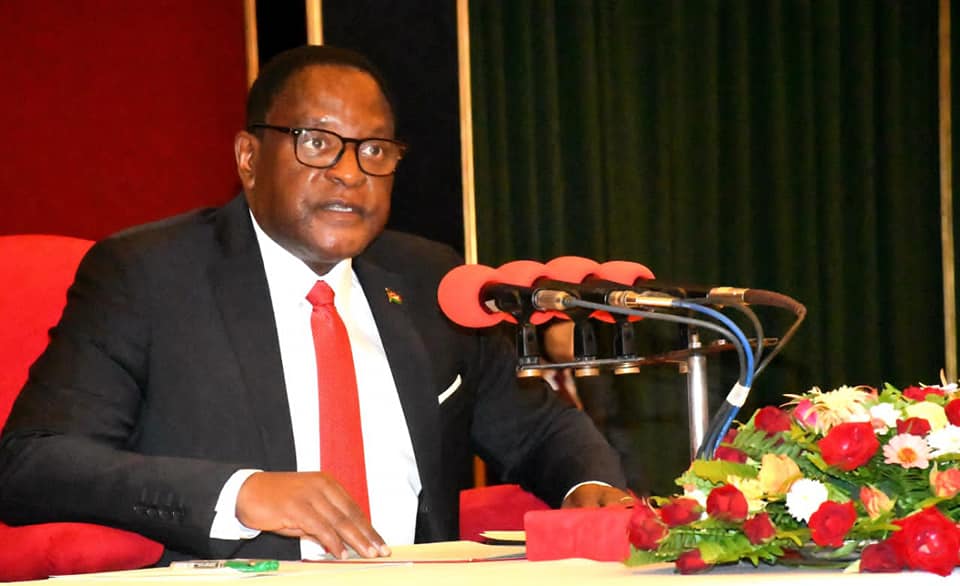CSOs demand Chilima, others’ resignation
At least six civil society organisations (CSOs) have urged those named in the Anti-Corruption Bureau (ACB) report related to alleged corrupt dealings, including Vice-President Saulos Chilima, to voluntarily step aside and pave the way for investigations.
ACB submitted a report to President Lazarus Chakwera who announced on Tuesday that 84 individuals, including Chilima, are implicated in alleged corrupt dealings with United Kingdom-based business person Zunneth Sattar.

But Chakwera only acted on the named four, by firing Inspector General of Police George Kainja, suspending his chief of staff Prince Kapondamgaga and Public Procurement and Disposal of Assets (PPDA) board chairperson John Suzi-Banda, and withheld delegated duties to Chilima.
The CSOs are Youth and Society (YAS), the Centre for Human Rights and Rehabilitation (CHRR), the Centre for Social Accountability and Transparency (CSAT), the Church and Society of the CCAP Synod of Livingstonia, the National Advocacy Platform (NAP) as well as the Human Rights Defenders Coalition (HRDC).
With the report submitted to the Speaker of Parliament Catherine Gotani Hara, Chief Justice Rizine Mzikamanda and almost all sectors implicated, the CSOs feel those mentioned have to step aside.

During a briefing in Mzuzu on Saturday, spokesperson of the group, who is also CSAT executive director Willy Kambwandira, said while matters are still under investigation, it was only proper for all those named to step aside
“We are also calling for the individuals that have been mentioned in the report to assume a position that would allow for independent and smooth prosecution of the cases by, among other things, stepping aside. We expect independence in the prosecution of the cases,” he said.
YAS executive director Charles Kajoloweka said with the Chief Justice and Speaker also served with the report, it would be ideal that such offices internally discipline the alleged law breakers.

He said: “So, if someone in the Judiciary is involved, you don’t expect that person to be presiding over cases. The Chief Justice should take measures to strengthen judicial accountability at all levels particularly in the handling of ‘State capture’ corruption cases. We urge the Judicial Service Commission to decisively deal with any attempts aimed at obstructing justice by devious judicial officers.
“The President, Chief Justice, Speaker of National Assembly and Secretary to Cabinet should under their respective mandates and jurisdictions expeditiously institute independent internal inquiries and commence disciplinary proceedings against public officers named in the Zunneth Sattar investigation report.”
Michael Kaiyatsa of CHRR urged the ACB to expedite the prosecution of the cases whose investigations have been concluded, calling for all stakeholders, including the office of Director of Public Prosecution (DPP) to provide necessary support to the Bureau without unnecessary delays.
He said: “ACB should ensure speedy, fair and transparent investigations where the same are still ongoing or pending, including all the cases dating back to 2008 as alleged.
“This is key for upholding unselective and fair justice. We also urge ACB to periodically update Malawians on the state of the cases as it is accountable to the people of Malawi.”
As a way of enhancing accountability, CCAP Livingstonia Synod Church and Society executive director Moses Mkandawire also called on political parties that participated in the 2020 Presidential Elections to voluntarily declare the financiers of their campaign activities
But in a statement on the matter through his director of communication Pilirani Phiri, Chilima on Thursday challenged ACB to expedite the process and quiz him.
Reads the statement: “The report apparently makes serious allegations of criminal conduct against the Vice-President although, as correctly observed by the President in his address, the report does not present any detail of the alleged criminal conduct.
“The Vice-President finds the manner in which the bureau has proceeded very troubling. The Bureau has, in essence, accused him of a crime without providing any particulars or evidence in support of the crime.”
Earlier, Malawi Law Society (MLS) president Patrick Mpaka and legal scholar Danwood Chirwa described Chakwera’s decision on his Vice-President as the safest route in the circumstances.
Chirwa, a professor of law at the University of Cape Town in South Africa, said there were two possible options in view of the findings of the report.
He said first was for the Vice-President to voluntarily resign to pave the way for investigations or what the President has done.
Chirwa said: “Ideally, the Vice-President has been suspended. It is a delegated office and when the President says he has withheld delegation of functions, what he is saying is that he has technically suspended the Vice-President. That is the only safest option as far as the law is concerned.”
But he said Parliament was at liberty to initiate impeachment procedures if there are sufficient grounds to do so without waiting for conclusion of the legal process.
Chirwa said: “It is true that all those named in the report must be presumed innocent until proven guilty, but that doesn’t stop Parliament from taking its own action.”
Mpaka, on the other hand, said while the President has no powers to suspend his second in command, his decision serves to safeguard the integrity of the Presidency.
He said what is important now is for law enforcement agencies to act with speed in handling the cases.
Chakwera said besides the four he has taken action on, the report showed that in the eight months between March and October 2021, 53 public officers and former public officers allegedly received bribes from Sattar.
He said the alleged beneficiaries are from various MDAs, including the graft-busting agency itself.





